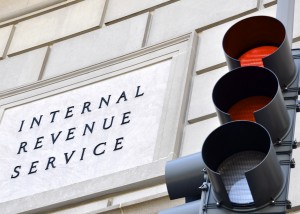If you fail to pay over the federal employment tax you withhold from your employees’ salaries the IRS will eventually come knocking on your door. This problem generally occurs when a business runs short of cash to pay both operating expenses and payroll. There may be enough cash to pay vendors and pay net payroll, but not enough to pay the federal government the employer and employee withholding taxes. Employer withholding taxes are 7.65% of gross payroll which consists of 6.2% social security tax and 1.45% medicare tax. The employee withholding consists of federal income tax and state income withheld in addition to the 6.2% social security tax and 1.45% medicare tax.
When the quarterly 941 federal employment tax return is filed with the IRS, the Government gives the employee credit for the tax withheld listed on the quarterly 941 returns whether the employer pays over the employer and employee withholdings or not. That is why the tax withholdings are called trust fund taxes because the employer is holding the money in trust for the federal government. The funds do not belong to the employer and if the employer uses the money for something else he is in essence stealing from the federal government.
If you fail to pay over the employer tax withholding every month or quarter a Revenue Officer will show up at your business unexpectedly and want to interview you. You should hire a tax attorney before speaking with the Revenue Officer. I have handled many trust fund recovery interviews and have been able to reduce the proposed assessments dramatically if I was involved before the IRS Form 4180 interview took place. IRS Form 4180 is the form the Revenue Officer completes during the interview. The Revenue Officer will try to determine if you are the responsible party by asking:
- Did you make deposits or sign the business checks;
- Did you determine what bills were paid;
- Did you have ability to hire and fire employees;
- Did you sign the federal employment and income tax returns;
- Did you sign loans on behalf of the business;
- Were you involved in the day to day operations of the business;
- Did you make or authorize payment of federal tax deposits.
If the Revenue Officer determines that you are the responsible party he will issue Form 2751 which is a Proposed Assessment of the Trust Fund Penalty. I will help you determine If you do not agree with the proposed liability you can submit an appeal request within 60 days of the issuance of the notice. If the case is not resolved in IRS Appeals you can file a complaint in federal district court.
If a Revenue Officer does call or visit your business, please call Gregory J. Spadea of Spadea & Associates, LLC at 610-521-0604, in Ridley Park, Pennsylvania.













